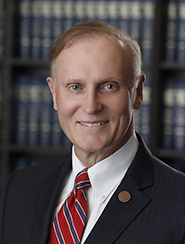
The Florida Senate this morning has teed up debate on an overhaul of the school funding plan lawmakers approved last month.
Proposals on the agenda would strip all the funding out of House Bill 7069 — the wide-ranging, $419 million education measure that’s been the center of controversy — except for one item: $30 million for Gardiner Scholarships, which provide education savings accounts to children with special needs. (Step Up For Students, which publishes this blog, helps administer the scholarships.)
And a key state Senator told reporters he hopes changes to the major education legislation won’t end there.
Lawmakers returned to Tallahassee this week for a special session to meet three of Gov. Rick Scott’s priorities. He wants them to steer more money into economic development, tourism promotion and public school funding. The governor freed up more than $400 million last week by slashing individual spending items out of the budget.
But the House and Senate are at odds over how, exactly, to fund the governor’s priorities (and perhaps some priorities of their own).
Sen. David Simmons, R-Altamonte Springs and the education budget chief, said the $140 million Schools of Hope initiative could give lawmakers more money to work with. He said it was unlikely many Hope Operators — charter school networks with successful track records — would be prepared to open in Florida within the next year. As a result, much of the grant money reserved for them would not get spent.
“What is the reason for letting it sit fallow?” he asked during comments to reporters yesterday. “Why not go ahead and use at least $140 million for the purpose of improving education funding for our children today, in 2017-18?”
Simmons has proposed amendments to the spending plan the Appropriations Committee will consider this morning. They would shift the Schools of Hope funding, plus $233,950,000 set aside for teacher bonuses in HB 7069, into the overall operating fund for Florida’s public schools. They would also set aside $100 million in new support for turnaround efforts at all schools rated D or F for three or more straight years.
Even they find support in the Senate, Simmons’ proposals would have to win approval in the House. Speaker Richard Corcoran told the Tampa Bay Times/Miami Herald Tallahassee Bureau it won’t happen.
“I don’t think it’s productive to try and remove funding for low-income / failing schools and hard-working teachers,” Rep. Manny Diaz, R-Hialeah and chief House education budget-writer, told the newspapers. “The House will hold steadfast in our support of students and hard-working teachers.”
For now, it’s best to view Simmons’ proposals as potential starting points for negotiations. Diaz has introduced a straightforward plan to boost funding for public schools by $100 per student using the money freed up by Scott’s vetoes.
No matter what lawmakers do with the funding, the policy changes in HB 7069 would remain intact if it wins Scott’s approval. The bill has not yet been sent to the governor, but when it does, he’ll have 15 days to decide whether to sign or veto it.
Simmons, who voted against the legislation after a contentious debate on the Senate floor, said he hoped lawmakers would revisit some of the policies in the bill before the special session adjourns. He raised concerns about three parts.
- Changes that would shift control over federal Title I funding from districts to individual schools.
- A requirement that school districts share facilities funding with charter schools, which has been at the core of districts officials’ opposition to the bill. Without that funding, charters would face a significant budget cut.
- The parts of the Schools of Hope proposal that would speed up the timetable for school turnarounds. Simmons said he worries 115 persistent D and F schools would be forced to make drastic changes with weeks to go before the start of next school year.
“These are three areas that we can deal with, and I believe if we can’t get it done right now, we can get it done, certainly, in the next 15 days and come back and revisit,” Simmons said.


